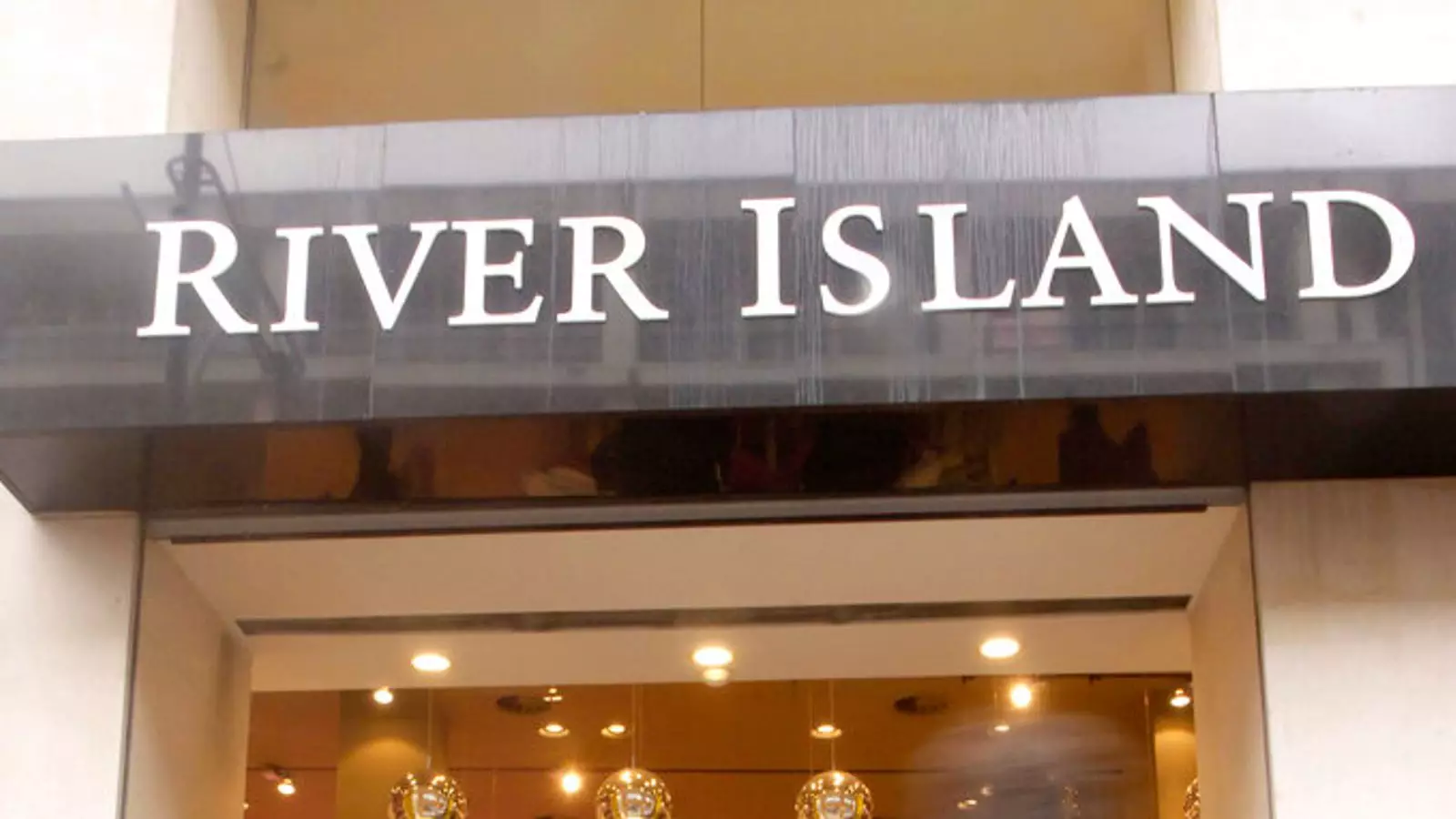The recent news surrounding River Island, one of Britain’s staple fashion brands, heralds a dark period not just for the retailer but for the high street at large. As reports emerge of a potential restructuring plan orchestrated by the company’s owners in partnership with PricewaterhouseCoopers (PwC), the stakes have never felt so high. River Island operates more than 230 stores across the UK and employs approximately 5,500 people. A restructuring of this size could lead to an unimaginable loss of jobs and the shuttering of beloved storefronts, signaling a grim future for both employees and loyal customers who rely on the brand’s offerings.
The brand is under immense pressure, with accounts revealing a staggering pre-tax loss of £33.2 million for the year ending December 2023. Such figures are alarming and speak to broader trends affecting retailers, particularly in the fashion sector. A 19% drop in turnover to £578.1 million cannot be dismissed as mere fluke; it’s indicative of a profound misalignment with consumer needs. Once a formidable player in a bustling market, River Island finds itself in a quagmire, wrestling with challenges from eroding consumer confidence and increasing online competition that has unseated traditional shopping paradigms.
Retail Revolution or Retail Ruin?
The very essence of the retail landscape has shifted dramatically in recent years. Consumers today demand more than just quality; they seek experiences tailored to their ever-changing preferences. River Island’s predicament exemplifies a collective struggle among many retailers which have failed to adapt swiftly. The shift toward convenience, diversity, and speed in shopping threatens to leave companies like River Island clutching at straws rather than leading the charge.
In an era dominated by rapid technological changes and evolving consumer behavior, River Island’s adherence to conventional retailing practices may be its downfall. The emergence of geopolitical tensions has disrupted supply chains, causing significant implications for operational efficiency and cost structures. As energy prices soar and disposable income wanes, brands that do not innovate are likely to fade into obscurity. This is not merely a business crisis; it’s a wake-up call to an industry that has long been resistant to significant change.
An Unforgiving Landscape
The decision to engage PwC for a restructuring plan comes at a time when other notable retailers are grappling with similar fates. The wave of closures among well-established brands—sparked by factors such as tax changes imposed by policymakers—raises critical questions about the long-term sustainability of high street fashion. While the high street ecosystem has always boasted of its vibrancy, it now seems overshadowed by a looming threat of monotony and inactivity.
River Island’s struggles are emblematic of the broader malaise gripping the retail sector. It becomes difficult not to notice how the policies from governmental bodies, such as those put forth by Rachel Reeves, have failed to support the industry. As a center-left liberal, my concern leans towards ensuring that the state does more than just react; it should proactively empower these enterprises to evolve rather than wither. Retail has been the lifeblood of our economy, and when businesses flounder, entire communities suffer.
From Yellow Pages to Digital Stores: The Fight for Relevance
Given River Island’s emphasis on physical stores, the strategic pivot they need is colossal. The fact that the company has called in external consultants already underscores a crucial point—their methods of managing operations are insufficient for today’s market realities. Riveted by competition from the likes of online fast fashion and discount retailers, River Island’s inability to navigate this landscape leaves one wondering if its brand heritage will be enough to survive this tempest.
The upcoming weeks will reveal the fate of River Island, an encounter not simply with its creditors but with its very identity. Is it brave enough to shed its traditional image and embrace a future succinctly aligned with current consumer preferences? For many, River Island stands as a beacon of nostalgia, yet nostalgia alone does not create a sustainable business model in today’s volatile retail environment.
As we remain entrenched in this battle for survival, one can only hope that River Island’s leadership demonstrates the agility to pivot, innovate, and ultimately redefine what it means to be a successful clothing brand in an unpredictable world. The outcome of this story could either be a tale of resurgence or a tragic chapter in the history of British retail.

Leave a Reply